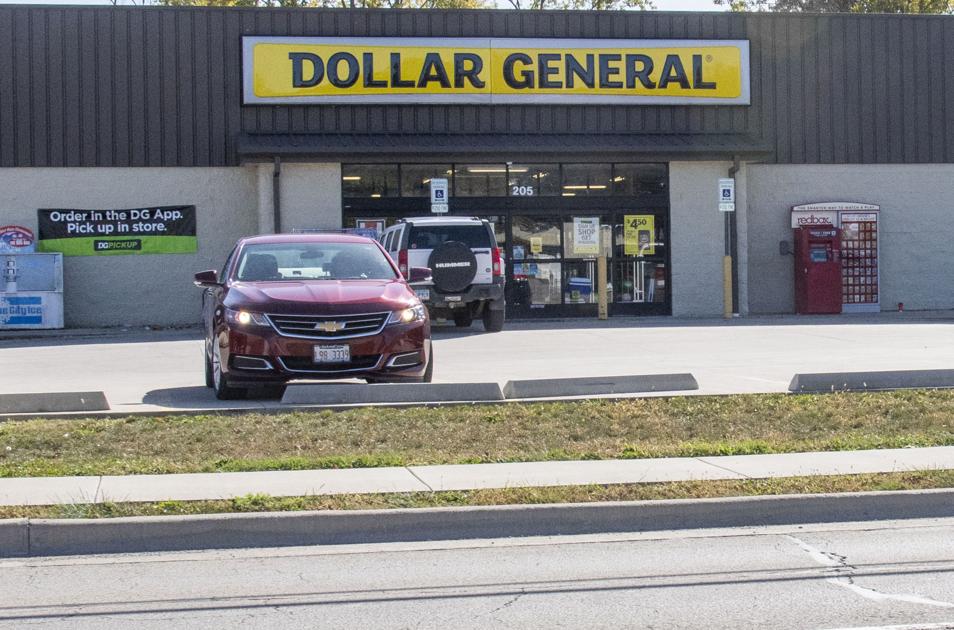
Submit questions for Tom's Mailbag by clicking here
TUSCOLA — Brick-and-mortar retail stores were struggling, even before the pandemic.
But not Dollar General.
The store now has more than 480 locations in Illinois, up from 200 in 2000 and more than Dollar Tree or Family Dollar.
About 42 percent of those Dollar General stores are in rural areas in Illinois, far more than its competitors.
The remarkable rural growth of Dollar General was the source of a recent University of Illinois Extension webinar from Adee Athiyaman and Chris Merrett, from the Illinois Institute for Rural Affairs at Western Illinois University.
“What’s been curious to us is that despite these tremendous macro-scale processes, that dollar stores, including Dollar General, continue to grow,” Merrett said.
Dollar General opened more stores in the U.S. in 2019 than any other retailer, he said.
“Dollar General … is expanding into regions of economic and demographic decline,” Merrett said. “And so I would suggest that this is kind of a counterintuitive business model.”
He said the stores are cheaper to open than larger retailers, smaller and easier to navigate, have lower operating costs with fewer products for sale.
“The product mix is really focusing on household and food items, (which) has always been important in lower income households, but during a pandemic, it’s even more so,” Merrett said.
He also said Dollar Generals tend to go where larger retailers often won’t.
It’s “competing where and going into where other retailers are not,” Merrett said. “So Dollar General is going into low-income rural and lower-income suburban communities.”
***The rapid expansion has stirred a debate in small towns, with some welcoming the new business and others accusing the company of profiting off poorer communities and driving out locally-owned grocers.
They create jobs, generate tax revenue and help address a lack of grocery options, Merrett said, but typically employ fewer people and pay them less than at a locally-owned store.
“Some communities have actively recruited Dollar General because they’re in a food desert area,” Merrett said. “They don’t have a local grocery store.”
They’re also often located on the edge of town, which could hurt small-town downtowns.
“Many of the Dollar General stores are located at the outskirts of town, presumably where a county road leading into the community meets a busier thoroughfare and so that may disrupt the local ecosystem, taking foot traffic and car traffic away from downtown out to the outskirts,” Merrett said.
Dollar General did not respond to a request for comment.
Merrett encouraged towns to be thoughtful about handing out incentives especially if they already have a grocery store, encouraged them to fill downtown locations and consider starting rural grocery co-ops.
“Do some data mining to understand the capacity of your county, for example, to support additional retail stores,” he said.
Merrett said towns can place zoning limits on chain stores or add extra planning review for certain types of retail. But he said those strategies are more common in urban areas than rural, which have less leverage.
***
In Tuscola, the Dollar General store used to be located in its downtown district, but moved to U.S. 36.
Brian Moody, the executive director of the Tuscola Chamber & Economic Development, said the old store “was pretty run down.” Dollar General “spent several years trying to find an ideal location,” he said.
They ended up finding a location that used to be a gas station.
The new location hasn’t hurt downtown, he said, since Tuscola’s was growing when it left.
“Downtown was already doing pretty well,” Moody said. “People were worried it would have a negative impact on traffic, but because of other things happening, it’s balanced out pretty well.”
The town has long had a highway district, Moody said, so that’s “probably why it hasn’t hurt us as much.”
He said the Tuscola IGA grocery store, which is planning a move to the former Shopko location, has been doing well.
“We have a very strong local grocery store,” Moody said. “We’ve been very fortunate, where our’s has remained strong, even with Dollar General.”
In Catlin, the IGA closed a few years ago, but Mayor Butch Schmink didn’t blame Dollar General.
Instead, he said, “the place out there is a lifesaver to Catlin” since the IGA closed.
While they don’t sell fresh produce and meat, he said, “they have the milk and the eggs and pop and chips and the bread and a few canned goods and fruit.”
“A lot of people use it,” Schmink said. “You can’t go by and there’s not a half a dozen cars there.”
The village of Homer is prepping for a Dollar General.
Mayor Ray Cunningham said a developer wants to build one north of the fire house.
While he said it’s technically on the outskirts of town, Cunningham said, “there’s not many businesses in downtown and it’s really only about an eighth of a mile from downtown.”
He and the village board “are favorably looking forward to it because of the loss of our grocery store.””
The Homer Country Market closed in July 2019.
“They had been a mainstay for decades,” Cunningham said. After they closed, “that left a deficit in the community for groceries.”
He said residents have been getting groceries at the St. Joseph IGA, the Urbana Walmart or in Danville.
“It will be a good service for the community,” he said.
"general" - Google News
October 18, 2020 at 09:40PM
https://ift.tt/31ldCfJ
Making sense of Dollar General's rural growth | Business | news-gazette.com - Champaign/Urbana News-Gazette
"general" - Google News
https://ift.tt/2YopsF9
https://ift.tt/3faOei7
Bagikan Berita Ini














0 Response to "Making sense of Dollar General's rural growth | Business | news-gazette.com - Champaign/Urbana News-Gazette"
Post a Comment